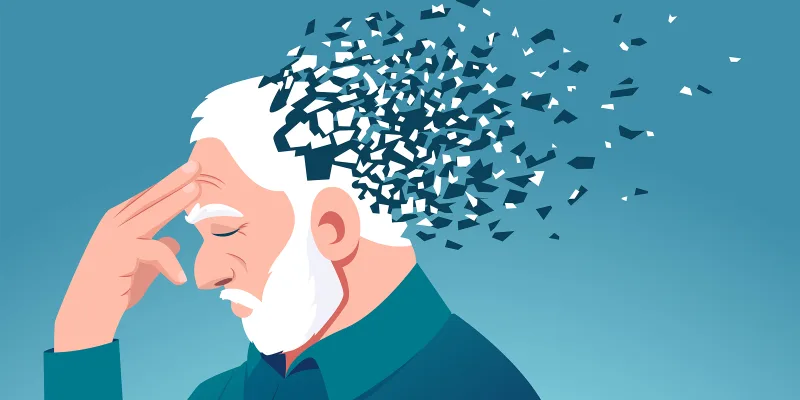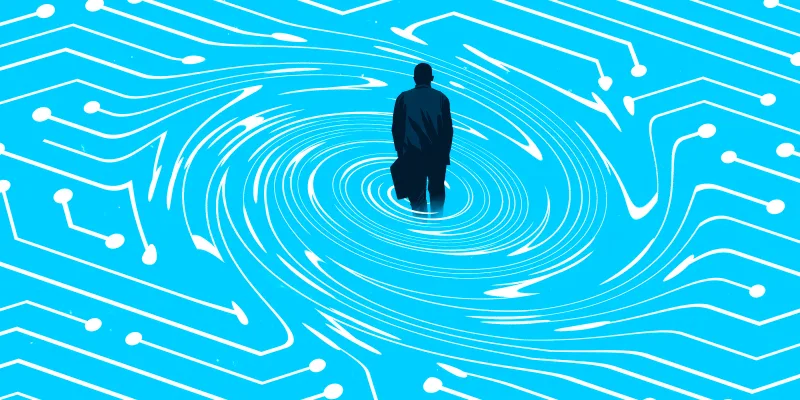As clinicians across the country know, the EHR — a digital behemoth intended to streamline health care — has become synonymous with burnout and administrative overload. In response to this trend, tech giants like Oracle and Epic Systems, alongside ambitious startups, promise to alleviate our burden by integrating artificial intelligence (AI). While the prospect of an AI-powered EHR evokes excitement in some, a palpable apprehension lingers among physicians who fear further complications and increased paperwork. Having witnessed firsthand the struggles of clinicians navigating the labyrinthine EHR, I believe that AI, when implemented thoughtfully, can transform these digital abysses into powerful allies in patient care.
At the Oracle Health Summit in late October 2024, the company revealed their plans for 2025: a complete re-imagining of the EHR from the ground up. In Oracle's vision, AI takes center stage, with features ranging from AI-enabled patient health record summaries to AI-based software navigation to an AI-driven data intelligence system that recommends targeted care plans. In addition to the primary clinical workflow, their proposed EHR includes tools that support patient recruitment in clinical trials and that streamline relations between payers and clinicians. This "all-in-one" system is a significant leap from the company's prior offerings (through their acquisition of the Cerner EHR) and represents a departure from what is currently perceived to be the role of the EHR. Oracle touts the new system as feeling "like having your own resident" — a sure boon for actual residents, who can focus on clinical work, and for non-academic centers.
Epic Systems is considered one of Oracle's largest rivals in the EHR space, and was one of the few companies to have market share growth in acute care EHR system sales in 2023. It too is prioritizing AI and reports "more than 60 significant development projects underway," in addition to the suite of generative AI tools it already offers. However, Epic has taken a different approach by partnering with Microsoft to build on the Azure OpenAI Service and Microsoft Cloud. As such, many of their initial offerings have utilized the existing strengths of large language models (LLMs) such as GPT-4 in summarization, documentation, and administrative tasks — likely "fine-tuned" for the health care setting. One particular strength of LLMs is their ability to act as chatbots — as the nearly 3 billion visits to ChatGPT's website can attest — and thus interact with patients directly, in easy-to-understand language. Epic highlights how their HIPAA-compliant pipeline allows clinicians to automatically draft replies to incoming inbox messages from patients. They also are developing an "ambient listening" system that generates clinical notes directly from patient/clinician conversations. Though some clinicians may feel that the note-taking process is a crucial part of their clinical management, others abhor this task. Epic's proposed EHR approach will help reduce the strain and monotony — and subsequent burnout — the EHR so often offers up.
The sheer volume of clicks, the endless dropdown menus, the headaches — these are the features that our modern EHR is best known for. As a medical student, I've observed my teachers wrestle with the problems tech giants are trying to solve. I recall a particularly formative day with a PCP during my "Principal Clinical Experience" core rotations at Harvard Medical School. I watched as my preceptor, a doctor I deeply respected for his intellect and wise teachings, typed out notes with two fingers, made minor clicking errors that resulted in having to re-do an entire order, and robotically pressed pre-selected billing codes for visit complexity. It's not just an issue of age. In a recent anesthesia rotation, the resident I was paired with showed me his Epic workspace where his view of notes only showed the changes since the last note, with the rest of the information in gray. I was astonished by this useful feature I had never seen used before, despite going through yearly Epic training, and many of his co-residents were similarly surprised.
This goes to show that just as important as the capabilities of a system is the usability — can we as clinicians make use of all of the bells and whistles? Indeed, this has been a major criticism of EHR technology in the past and a contributor to current skepticism. Systems implemented haphazardly and fixes that add more complexity are what got us into the current mess, and it will be important that companies do not repeat these mistakes with AI.
For example, AI transcription software from OpenAI, Whisper, recently came under fire after research studies showed it made significant hallucinations when transcribing patient encounters. Forty percent of the hallucinations in one such study were deemed harmful, adding non-existent medications or racial commentary, for example, to the record. This is a grave issue, as use of Whisper and similar AI transcription software is becoming ubiquitous in health care — the Associated Press reports that "over 30,000 clinicians and 40 health systems" are using a Whisper-based tool.
These examples demand serious attention, as they echo the same problems that contributed to physician burnout during the initial EHR rollout. It's particularly alarming to consider that the proposed 'solution' to AI transcription errors might simply be to burden doctors with yet another task: double-checking and vetting the AI's work. Yet to dismiss AI entirely based on these concerns is short-sighted. Current EHRs are already riddled with human error, from mis-documented allergies to incorrect active medications. As I have argued before, AI, with proper oversight and continuous improvement, offers a chance to reduce human errors, not exacerbate them.
What, then, does an ideal AI-powered EHR system look like for clinicians? I envision AI as an invisible EHR "co-pilot" for the clinical workflow. Imagine a system that anticipates the information a clinician needs based on the patient's presentation and automatically brings it out of the record so physicians don't have to search through years of documents and conflicting records. Where the process of ordering a medication or finding a data point is as simple as asking for it to be done. Imagine a system where irrelevant or even incorrect information isn't repeatedly copied forward to satisfy billing.
Even more exciting to me, imagine if AI could be trained on EHR data directly. Just as current LLMs learn language by "tokenizing" language into chunks and predicting the next token in a sequence, LLMs may be able to learn the "language of human health courses" by tokenizing health data as a sequence of chronological "health steps" and predicting future steps. Recent research has similarly shown the potential of AI to unlock information from the "unstructured" data of the health record and create useful predictions. New AI foundation models may soon be able to take a patient's hospital encounter for a surgery and "simulate" the trajectory of their recovery and future health encounters. Such a tool would be invaluable for population health and resource allocation, and could even automate some clinical work for treatment planning and decision-making.
Ultimately, a bold vision is required to rebuild our broken EHR into something that serves clinicians instead of the other way around. Rather than incremental fixes that only add another layer of complexity, we should demand more from AI and work toward a digital co-pilot for medicine. As health care data expands into the zetabytes, not using AI will become ethically indefensible — just as a physician would be negligent to ignore vital lab results, it will be impossible to meaningfully process a patient's complete medical data without algorithmic assistance. We ought to keep that in mind as we advocate for AI in the EHR — before we lock ourselves into another 20 years of clicks, menus, and headaches.
What EHR issues do you most want to see AI solve? Share in the comments!
Aditya Jain is a medical student at Harvard Medical School. He also is a researcher at the Broad on the applications of artificial intelligence in medicine. When he's not busy with school, he enjoys playing guitar, reading sci-fi, and hiking. He tweets @adityajain_42. Aditya was a 2023–2024 Doximity Op-Med Fellow, and continues as a 2024–2025 Doximity Op-Med Fellow.
Illustration by Diana Connolly







